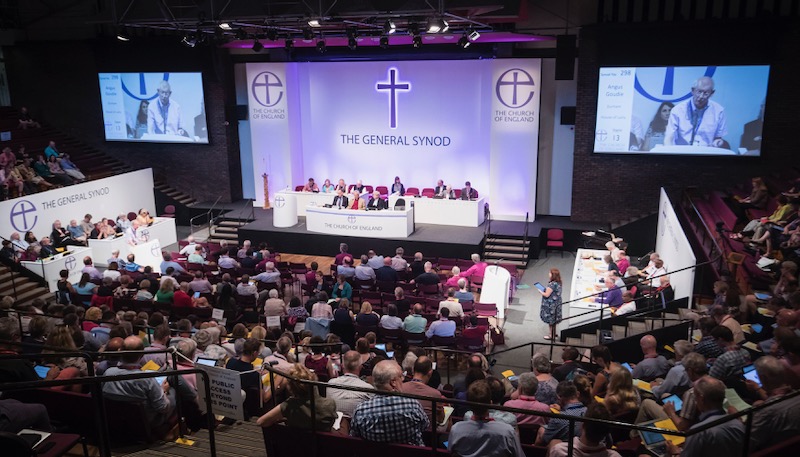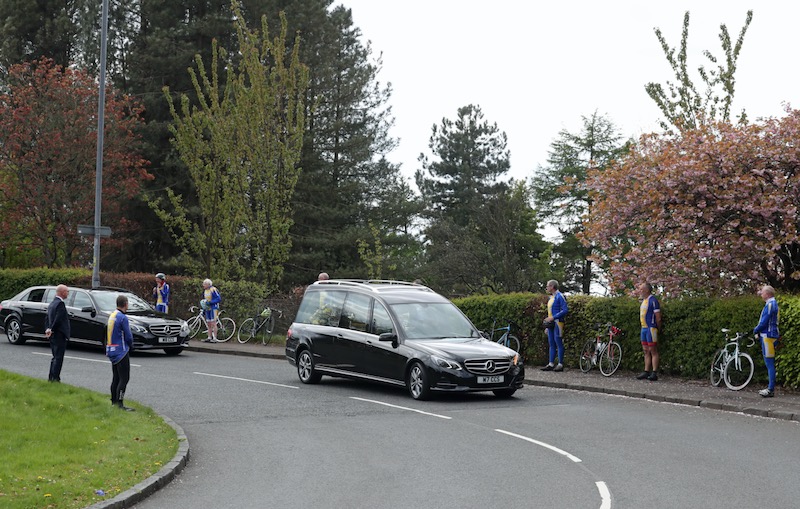Churches need to hold funerals after lockdown without the deceased’s body present for those who died during the coronavirus pandemic to help avoid a mental health crisis for the bereaved, one of the country’s leading experts on mental health has warned.
According to Paul Farmer, chief executive of Mind, the familiar rituals of a funeral are essential for mental wellbeing.
In an interview with The Tablet, to be published online tomorrow, he urges the Church to step in and help by holding funerals for those who died during the pandemic, even though a burial or cremation did take place soon after death.
“The danger is that it will say to people, ‘We had the funeral.’ But that would be dangerous,” he said. “We have to create the right way for people to say goodbye. Otherwise perfectly normal grief could move to depression.”
Mr Farmer’s comments come as 36 MPs have written to the Archbishop of Canterbury urging that funerals should be allowed to be held in churches again.
The letter, seen by the BBC, says: “The grief of bereavement is being translated to trauma in many cases.”
The government issued advice at the start of the lockdown, restricting the people attending funerals to close family members or members of the deceased’s household and, with churches closed, normal funeral Masses have not been possible.
The Liturgy Office of England and Wales’ guidance is for funerals to take place during lockdown at the graveside or crematorium.
Bishop John Sherrington, the bishop responsible for life issues for the Bishops’ Conference of England and Wales and an auxiliary bishop in the Diocese of Westminster, said that priests were very aware of people’s grief at this time and were looking to help.
“This is such a difficult time for people when they can’t say goodbye in the usual way. You have the suffering usually associated with death and the fact they can’t have the funeral they want is a second suffering,” he said.
“I know of parish priests who are talking to families about a Mass afterwards and many priests will respond in that way.”
In Ireland, the Bishop of Down and Connor, Noel Treanor, has confirmed that Requiem Masses for the dead will be celebrated after the pandemic has ended.
Professor Jim McManus, the director of public health for Hertford shire, who advises the bishops’ conference on public health and lockdown measures, said: “It is natural to wish to be with people we love and have lost in death. It may be felt as an additional cruelty that such physical closeness, while providing solace for our loss, may spread the virus still further. Only skilled and sensitive local care can help console people through such compound pain and loss.”
Bishop Sherrington is also proposing that parish churches and cathedrals hold memorial Masses in November – the month usually associated with prayer for the dead – for those who have died in the pandemic, if church life has returned to normal.
“When you have a pandemic of more than 30,000 deaths in Britain, it is the most significant thing that has happened this century, and we need to find ways to mark it. We have to keep finding ways of offering the consolation of God to people,” he said.
Priests were finding it very difficult to help the bereaved, Bishop Sherrington said. “A number have said they want to help families but they cannot visit them at home. All they can do is telephone.” He suggested that the bereaved could create a space in their home where they could place a photograph of the dead person and light a candle and offer prayers.
Read Catherine's Pepinster full interview with Paul Farmer of Mind.



 Loading ...
Loading ...